Get to know our project affiliated doctoral candidates.
The International Doctorate Program M3OCCA hostst a diverse group of doctoral candidates with a broad variety of scientific backgrounds to tackle the multitude of interdisciplinary challenges related to measuring and modelling mountain glaciers and ice caps in a changing climate.
Below you have the opportunity to get to know the doctoral candidates. Visit the Team page for more info on principal investigators and other colleagues.
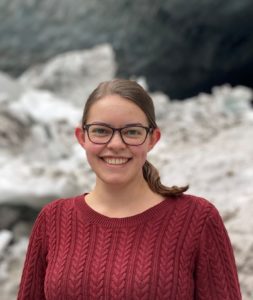
Originally coming from Michigan in the United States, I received my bachelor’s degree in Mechanical Engineering from the University of Michigan in April 2017. After subsequently working in the aviation field for a year, I moved to Munich to pursue my master’s degree in Earth Oriented Space Science and Technology at the Technical University of Munich. This program explored the uses of remote sensing, the technology behind it, and the geophysical processes to be observed. Through this, my desire to pursue research in the cryosphere was inspired and I started research in the Institute of Geography at the Friedrich-Alexander-Universität Erlangen-Nürnberg in May 2021.
This research focused on using deep learning techniques to detect supraglacial lakes in Northeast Greenland using Sentinel-2 data. Having been accepted to the IDP M3OCCA program, I am excited to now pursue my doctoral degree with the focus on the improvement of glacier outline segmentation using various remote sensing data while using the strengths of artificial intelligence.
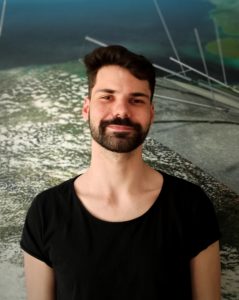
I am a Ph.D. student both at the German Aerospace Center (DLR) and the Friedrich-Alexander-Universität Erlangen-Nürnberg (FAU), being supervised by Prof. Matthias Braun (FAU) and Dr. Paola Rizzoli (DLR).
I have a bachelor’s in Electrical Engineering and a master’s in Telecommunications, both from universities in Brazil (where I came from!). The goal of my research was to develop methods for target detection and pattern recognition in synthetic aperture radar (SAR) images, mainly in military applications. After I received my master’s degree (March/2021) and seeking to work in a field in which I could see my work impacting people’s lives, I worked as a data scientist for a startup in Brazil, tackling problems in the agribusiness market. The company was heavily driven by how to improve the sustainability of medium- and large-sized companies and farmers in agriculture, which was a great learning experience and provided a lot of personal growth.
In this scenario, I heard about the IDP M³OCCA project and its ambition to be an interdisciplinary and international environment aiming at understanding and solving problems that can truly impact society. I am glad to be part of the project and thrilled to continue my research career in such a place.
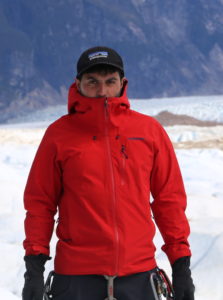
Jorge Berkhoff
My name is Jorge Berkhoff, I am from Chile.
I studied a bachelor in geography (2015 – 2020) and a master of science in water resources (2020 – 2022) at Austral University of Chile.
Since I graduated from my bachelor’s degree in 2020, I have studied and worked in different glaciers in Chile.
My main research interest is understanding the formation, evolution and dynamics of glacial lakes and their relationship with the glacier itself.
My research also links to the assessment of natural hazards in mountain areas conditioned by glaciers and glacial lakes, the glacier mass balance, glacier-climate interaction, geodetic mass balance, glacier hydrology. For such purposes, I am highly skilled in the use of remote sensing and geographic information systems for high mountain monitoring.
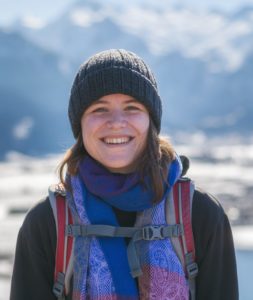
Nora Gourmelon
Hello, I am a doctoral candidate at the Pattern Recognition Lab in the FAU Department of Computer Science. My research focuses on deep learning techniques for segmenting radar imagery of glaciers. The number of available glacier radar images has steadily increased in recent years, reaching a point where purely manual interpretation is no longer possible.
This is where my work comes in – with deep learning, I can automate the image interpretation so that geographers around the world can simply use the outputs of my algorithms.
Outside work, I love to go hiking and experiment with different sports like bouldering, swimming, or dancing.
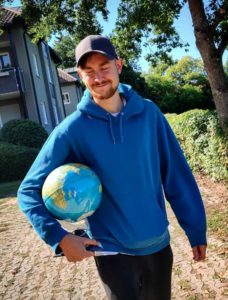
Oskar Herrmann
Want to learn more about Oskar’s research?
Click here to access a short video!
I studied computer science right after I finished high school. I had no idea what I wanted to do for a living, but I knew having a deep understanding of computers and algorithms will be beneficial in every field. During my study, I was particularly interested in pattern recognition and machine learning. Algorithms that identify objects in an image or generate new images based on a caption fascinated me. In the scope of my master’s thesis, I used machine learning algorithms to segment glaciers and detect their calving front in satellite images. Now I am looking forward to extending my research in glaciology together with the other PhDs candidates on the M3OCCA project.
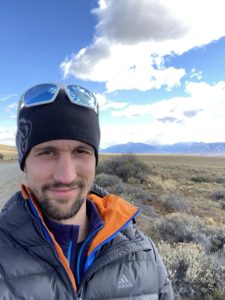
Moritz Koch
Hi, my name is Moritz Koch, i‘m an affiliated PhD student in the IDP MOCCA project. I work at the Friedrich-Alexander University Erlangen Nürnberg‘s department of geography in the working groups AG Glacier (Dr. Fürst) and AG GIS (Prof. Braun). In my PhD project, called ITERATE, i combine several remote sensing techniques and helicopter borne ground penetrating radar measurements to build a state of the art 3D numerical ice flow model. By doing so i hope to increase insight into the climate sensitivity of large outlet glaciers of the southern patagonian icefield. Outside my PhD i try to spend as much time on snow and ice or on some bare rock since mountaineering are one of my biggest passions. I am looking very much forward to connect with my like minded peers and whats to evolve from the project.
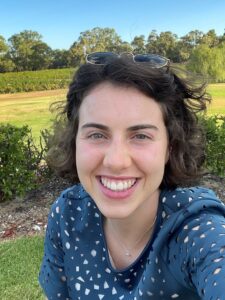
I completed my master’s degree in Electrical and Electronic Engineering at the University of Western Australia, where I developed a strong interest in high-frequency technologies. Combined with my passion for nature and the environment, the application of radar technology to analyze glacial ice and snow structures is especially exciting, given the ongoing challenges posed by climate change and environmental degradation.
My PhD research within the scope of the IDP M3OCCA focuses on a high performance, flexible and easily transportable radar system to gain detailed insights into glacial structures and their variations over time.
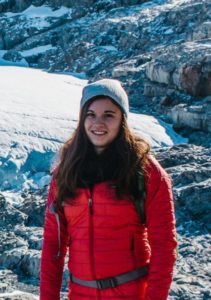
Elena Kropac
I am an atmospheric modeler in the Climate System Research Group at the FAU Erlangen-Nürnberg. I use high-performance computing and multi-dimensional (statistical) data analysis to study atmospheric processes in mountainous regions, and to investigate atmosphere-glacier interactions and atmospheric drivers for mass balance variability.
During my studies in Physical Geography (BSc) and Climate and Environmental Sciences (MSc) at the FAU, I have worked in the fields of glaciology, climatology and meteorology, with a methodological focus on physically-based numerical modeling (energy balance, mass balance and atmospheric modeling). In my PhD project, I am now working at an interdisciplinary interface between paleontology and climatology with the goal of using geochemical proxies from coralline algae to improve atmospheric modeling in the New Zealand region and to explore the atmospheric dynamics that control glacier mass responses in the Southern Alps of New Zealand to chances in sea surface temperature.
As an affiliated PhD student in the IDP M³OCCA, I look forward to connecting with PhD students from related research areas and having exciting scientific and non-scientific exchanges. Outside of work, you can find me on the (beach) volleyball court, hiking or climbing in the mountains, or enjoying a few drinks in a cozy bar.
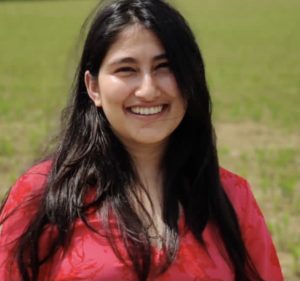
After graduating with a master’s degree in Environmental and Natural Resources from Kathmandu University, Nepal, I opted for the second master’s program in Climate and Environmental Science at the FAU Institute of Geography to broaden my horizon and enhance my environmental data analysis knowledge. During my master’s program, my interest in glacier environment, climatology, and machine learning grew.
The potential of deep learning applications to understand real-world physical phenomena captured my attention. Using efficient deep learning-based models to learn physics-based glacier models is a promising field of research. Thus, I look forward to incorporating machine learning into glacier modeling during my Ph.D. in the IDP M3OCCA program. My research will focus on developing physics-based deep learning emulators that will learn to predict the glacier dynamics. The emulators will be trained using the simulated data generated from the different glacier-based physical models.
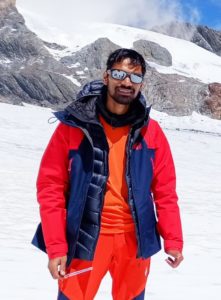
Akash Patil
Email: akash.patil@badw.de
Working in SP2.3
Want to learn more about Akash’s research?
Click here to access a short video!
I am a PhD student working at BAdW Munich in collaboration with FAU Erlangen. My working research project is mainly on the density profiling of the snow to ice on the Alpine glaciers. My fascination with researching glaciers has come from my time during my master’s in Applied & Environmental Geoscience (AEG) at the University of Tuebingen Germany. Where I have attained enough knowledge on the application of GPR to subsurface hydrogeology as my Master’s thesis under the supervision of Prof. Dr Reinhard Drews. My push towards nature science can be attributed to my bachelor’s studies in Civil engineering and my working experience in the construction industry and with the NGO as an Environmental and Civil engineer.
In my PhD, research is on the quantitative study of the variation of density with the depth from Snow to Ice in the Alpine Glaciers mainly on the Vernagtferner glacier. Application of GPR to attain spatial and temporal data at the accumulation zone during different seasons of the year, to track the boundary between firn and ice and to understand the dynamics of the glaciers with the regional climate change. This work is supervised by Dr Christoph Mayer at BAdW Munich and Prof. Dr Thomas Mölg from FAU Erlangen.

I am Felix. My research focuses on understanding the interaction between glaciers and permafrost in alpine environments. During paraglacial transition phases, as the landscape changes from ice to ice-free states, geomorphic activity is higher than usual. The relatively rapid and drastic change in thermal and hydrological characteristics predisposes rock slopes to a more fragile state. Furthermore, the evolution of permafrost in space is critical for the assessment of rock slope stability and potential hazards.
My aim is to develop a rock-ice mechanical model suitable to predict rock mass failure concomitant with changing cryospheric conditions. Besides rock mechanical laboratory experiments I will take advantage of the capabilities of the MOCCA group by having a joint field campaign using geophysics to explore glacial and permafrost conditions at a study site in Kaunertal. The knowledge of seismic, geoelectric and radar measurements will complement the permanent temperature monitoring of rock surface temperature to gain insights into the thermal characteristics at the study site. By coupling the mechanical model to a dynamic thermal model, we will be able to assess and predict rock mass failures in time.
Besides scientific goals you can hang out with me to blues rock music, even better to play some music together, to do some rock climbing or go fishing. As growing up in the Alps I am happy to work on a local study site in my home region.
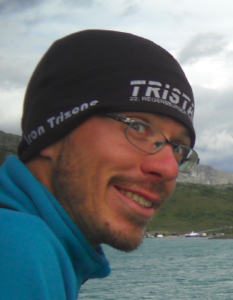
Manuel Saigger
Working in SP3.1
Want to learn more about Manuel’s research?
Click here to access a short video!
(the webcam video is from www.foto-webcam.eu)
My name is Manuel Saigger and within the IDP MOCCA I will be working on the influence of snow drift and internal refreezing on the glacier mass balance. Before I started working in Erlangen, I studied atmospheric sciences at the University Innsbruck. There I mainly focused on weather forecasting and weather simulations in alpine terrain and got really fascinated by the complex nature of flow fields in the surrounding of mountains. These complex wind patterns can in return lead to very complex patterns in snow accumulation, for example by redistribution of the snow.
Here my project comes into play. Because despite possibly being very important, this redistribution is not reflected in most glacier mass balance models, which on the one hand creates uncertainty in these models, but on the other hand gives us the opportunity to work on this problem and learn more about these fascinating processes.
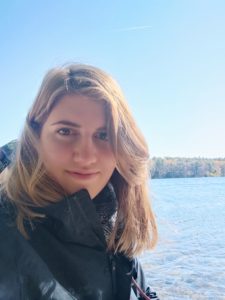
I am a PhD student both at the German Aerospace Center (DLR) and the Friedrich-Alexander-Universität Erlangen-Nürnberg (FAU), being supervised by Prof. Gerhard Krieger (FAU/DLR) and Prof. Irena Hajnsek (DLR).
I studied environmental engineering at the Technical University of Munich. Furthermore, I specialized in hydraulic engineering and water management as well as hydrology. The goal of my master thesis was to build, to adapt and to automate an existing Wet Snow Mapping Algorithm by Thomas Nagler in order to get detailed information about snow as well as glacier melt. This thesis really peaked my interest in SAR and snow/ glacier research and I believe to provide a contribution to the further development in this field of study.
In addition to my academic interests, I have always been interested in other cultures and foreign countries. I went to high school in the U.S. and New Zealand for a total of eight months, studied French for a year at the Université inter-âges in Paris, and spent a semester at the École polytechnique fédérale de Lausanne. I was able to put the experience and knowledge I gained during my time abroad to good use as a student representative and in my work at the TUM Center for Study and Teaching for five years. There I advised mostly international students on problems within their studies. The IDP M³OCCA with its interdisciplinary and international approach is an excellent continuation of my previous work.
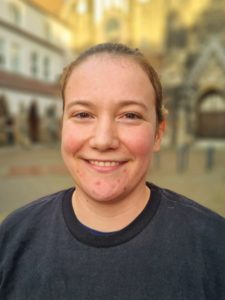
Antonia Warnstedt
During my bachelor’s and master’s programs I recurrently studied the climate change impacts on the cryosphere in high mountain areas. Especially mass-movements related to a sudden water release f.i. meltwater from glaciers were the center of my work. To understand and retrace these events different mass-movement e.g. glacial lake outburst floods (GLOFs) or lahars, different simulation tools and software were utilized: r.avaflow, LAHARZ, and MSF. For my Ph.D. studies, I want to shift my focus to the glaciers and their dynamics themselves.
The Climate sensitivity of western Antarctic Peninsula ice shelves (CSAPIS) is a subproject within the DFG Priority Program ‘Antarctic Research with Comparative Investigations in Arctic Ice Areas’. The main research subjective is to constrain the sensitivity of the ice shelves and their tributaries along the western Antarctic Peninsula to the influence of upwelling, warm circumpolar deep water. Doing so by analyzing time series of remote sensing data and retrieving glacier surface velocities for consecutive ice dynamic model assimilation and updating further glaciological variables such as surface elevation change, grounding line, ice front positions as well as structural conditions. Furthermore, the above-mentioned data will be used in forward simulations to improve the current mass change and ice shelf retreat estimates.
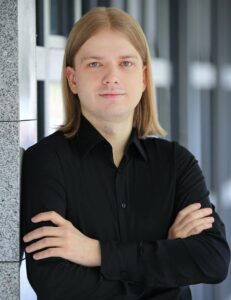
Hi, I am Marcel, and I studied Computer Science at Friedrich-Alexander-Universität Erlangen Nürnberg. I finished my master’s degree in August 2023, and I am currently a PhD student at the Pattern Recognition Lab at Friedrich-Alexander-Universität Erlangen Nürnberg under the supervision of Prof. Andreas Maier.
My research in the M3OCCA project focuses on the segmentation of glacier radar images using deep learning. Since glacier radar images are usually segmented by hand, geographers spend many hours dividing the glacier into different sections. Especially with the increase in data in recent years, this task has become very expensive. Hence, my research aims to alleviate that problem by using deep learning to speed up and automate the segmentation of glacier radargrams.
In my free time, I enjoy going for walks and bouldering.
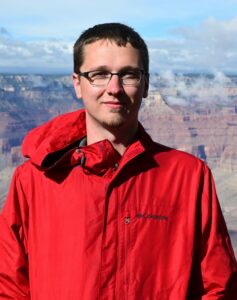
Dakota Pyles
Hello, my name is Dakota Pyles and I moved to FAU Erlangen-Nürnberg from the Rocky Mountains of west Montana, USA. Born in Budapest, Hungary to a native Hungarian family on my mother’s side, my parents raised a multicultural family, which inspired a permanent relocation to Europe. I completed a B.Sc. in Geosciences at the University of Montana (2016-2019) and a M.Sc. in Geology at the University of Idaho (2020-2022). My academic interests include the cryosphere, glacier dynamics, geophysics, climatology, meteorology, and geomorphology. During the master’s project, I numerically modeled surface mass loss in the ablation zone on the west coast of Greenland by integrating satellite observations, modeled, and in-situ datasets into the 2-D mass continuity equation.
My doctoral research project aims to quantify annual/seasonal frontal ablation, climatic mass balance, and total mass budget for marine terminating glaciers across the Arctic, with the project supervised by Dr. Thorsten Seehaus. To identify and evaluate external drivers of glacier change, the above calculations will be combined with atmospheric, oceanic, and sea ice datasets. Through multivariate statistical analyses between these datasets and mass balance components, we look to provide an improved understanding of dynamic glacier processes, their spatio-temporal variability, and the influence of glacier geometry on observed changes throughout the Arctic. The interdisciplinary nature of this research is very exciting and it will be fun to see how the project develops! I am grateful to be working towards a doctoral degree as a M3OCCA affiliate within FAU’s Institut für Geographie, and excited to connect with other M3OCCA Ph.D. students. Outside the office, I enjoy lots of sports, cooking, traveling, and the mountains!

Vijaya Kumar Thota
I am Vijaya Kumar Thota, an affiliate of the IDP M3OCCA. I work as a Ph.D. researcher in AG GIS (Prof. Braun) working group at the Institute of Geography, FAU Erlangen-Nuremberg within Dr. Thorsten Seehaus’ UNLOC project. My research focuses on estimating long-term glacial changes in the Antarctic Peninsula, mainly using 1. Historical photography combined with modern photogrammetric techniques, 2. SAR missions of recent times. Findings in my PhD will implicatively contribute to SP 2.2 of the M3OCCA project. Also, as an affiliate, I would be working on the other objectives of the M3OCCA project through a collaborative journey with others directly involved.
Happy to share my PhD journey together in this IDP. Excited to see our results!
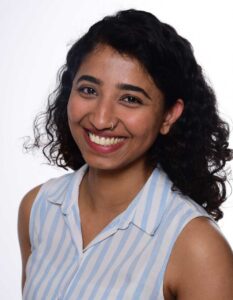
Veena Prasad
Want to learn more about Veena’s research?
Click here to access a short video!
Hello. I am a doctoral student at Friedrich-Alexander University Erlangen Nürnberg’s department of geography in the working group AG-Glacier. In my Phd-Project, I am working on the development of a regional-scale 3-D glacier forecast framework for Marine- and Lake- terminating (MALT) Glaciers. Calving rate perturbations and calving front dynamics strongly influence the glacier dynamics and feedback mechanisms of MALT Glaciers. My research aims to establish accurate sub-grid tracking of calving-front migration, a crucial aspect for achieving realistic behavior in glacier models. The initial development is conducted on well-surveyed marine-terminating glacier complexes of Svalbard (e.g., Kronebreen) and is then applied regionally.
I am enthusiastic about the collaborative opportunities within the IDP M³OCCA, where I can contribute and learn from diverse perspectives to further enrich my research experience.
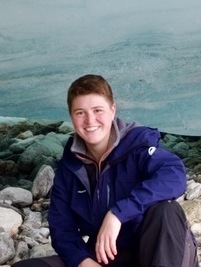
Anna Zöller
Hi, my name is Anna Zöller and I will be working on the FlyHigh Project at FAU in the AG Glacier Systems & Natural Hazards. I already did my B.Sc. in Physical Geography and M.Sc. in Climate and Environmental Sciences at FAU, where my interest in glaciology developed early on. My PhD project will be focused on UAV-based remote sensing of glacierised high-mountain environments, comprising atmospheric soundings and photogrammetric surveys. The newly developed OpenGeoDrone combines advantages of fixed-wing and rotary UAVs, and will acquire valuable high-resolution data for glacier monitoring and creating a better understanding of the structure and dynamics of the boundary layer.
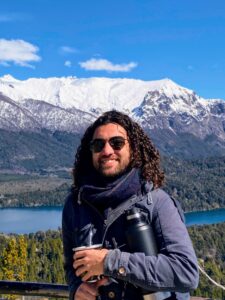
Diego Pacheco Ferrada
I’m Diego Pacheco Ferrada, a Chilean researcher with a deep passion for nature and ecology. I hold a B.Sc. and M.Sc. degree in Civil Engineering from the Technical University Federico Santa María in Valparaíso, Chile, where I developed a strong interest in earth sciences. My academic focus has centered on understanding the impacts of climate change on the high mountain cryosphere and its hydrological systems. During my master’s studies, I specialized in snow hydrology, with a particular emphasis on how snow cover surfaces respond to the deposition of light-absorbing particles such as black carbon and mineral dust.
My doctoral research extends my interest to glacierized areas, which are critical both for society and for the development of high mountain ecosystems. Specifically, my research is centered on the Tropical Andes, a region that has experienced significant glacier retreat in recent decades due to severe climatic changes. Through this project, we aim to assess mass changes and the current state of conservation of high mountain glaciers in the Tropical Andes by employing state-of-art remote sensing techniques and assessing new developments to overcome limitations on data availability.
I’m glad to be part of M3OCCA as an affiliate doctoral candidate, and I’m excited to share experiences and perspectives.
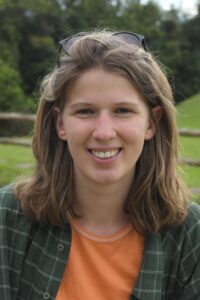
Céline Walker
Want to learn more about Céline’s research?
Click here to access a short video!
Hello, my name is Céline and I’m a doctoral researcher in the M3OCCA affiliated DeLIGHT project within AG GIS at FAU Erlangen Nürnberg. I grew up in the Swiss Alps and the mountainous environment has always fascinated me. From an early point in my studies in Physical Geography at the University of Zurich, glaciers caught my interest.
In my Master’s thesis, I investigated supraglacial processes on a debris-covered glacier in Switzerland. In the DeLIGHT project, we are working on embedding a deep learning-based ice flow model into a catchment-wide hydrological model to predict future water availabilities and glacier-related hazards.
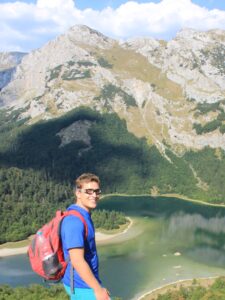
Nikola Jovanović
Want to learn more about Nikola’s research?
Click here to access a short video!
I’m Nikola Jovanović, a PhD researcher from Bosnia and Herzegovina. I was born and have always lived in rather flat regions, which is why people sometimes question my passion for glaciology. I completed my B.Sc. studies at Utrecht University in the Netherlands, majoring in Physics and Earth Sciences. It was during this time that my passion for glaciology surfaced, leading me to conduct a thesis about the evolution of the surface mass balance of the Antarctic Ice Sheet from CESM2.
From the very flat Utrecht, I moved to an even flatter Hamburg to further explore my interests in atmosphere, ocean, and cryosphere sciences at the M.Sc. Ocean and Climate Physics at the University of Hamburg. In Hamburg, I had the opportunity to delve in a wide range of topics, from theoretical oceanography to sea ice physics. Despite this, my focus remained on glaciology, leading me to conduct my thesis research at the Alfred Wegener Institute in Bremerhaven. There, I ran a one-dimensional firn model along glacier flowlines in Southeast and Southwest Greenland to observe the evolution of firn aquifers and ice slabs.
Recently, I moved to (hilly?) Erlangen, where I work as a doctoral researcher in a junior research group within the M3OCCA-affiliated DELIGHT framework, under the supervision of Dr. Samuel Cook. The primary focus of our work is the evolution of mountain glaciers, and specifically the likelihood of glacial lake outburst floods, which we aim to simulate using the Instructed Glacier Model.
When I’m not busy with glaciers, you will likely find me playing with my cat, reading Tolkien or playing handball.
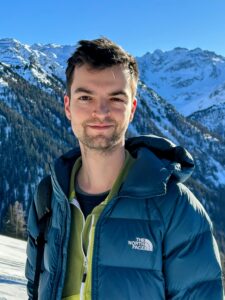
Valentin Marx
Hi, I’m Valentin. I’m originally from the Allgäu region, so I’ve always been passionate about mountains and glaciers. I completed my bachelor’s degree in Ulm and my master’s degree in medical engineering in Erlangen. I was already working on radar hardware in my Master’s thesis. At M3OCCA, I develop and test the hardware for new radar systems for surveying and researching glaciers.
In my free time, I like to be outside and go hiking in the mountains.

